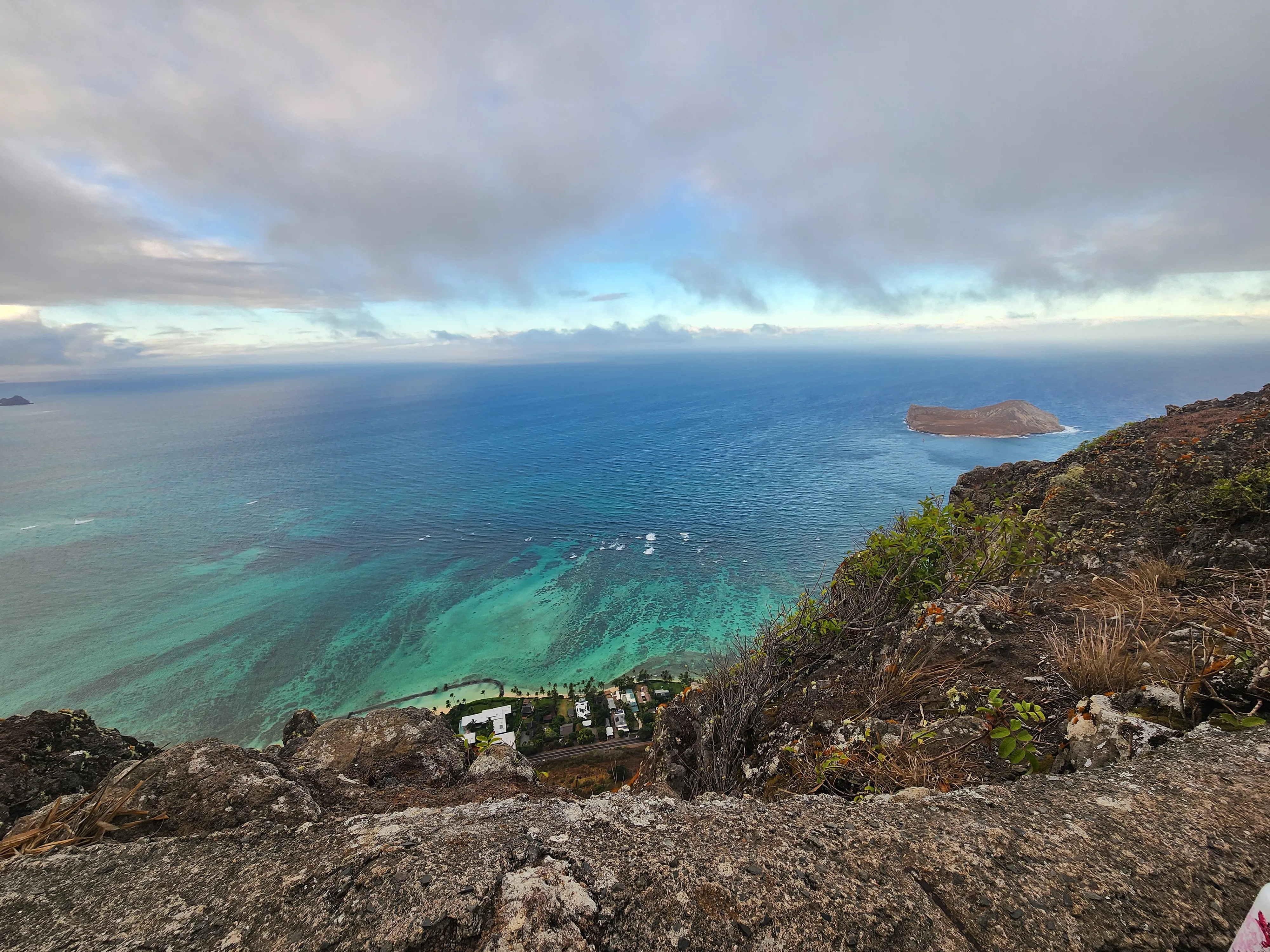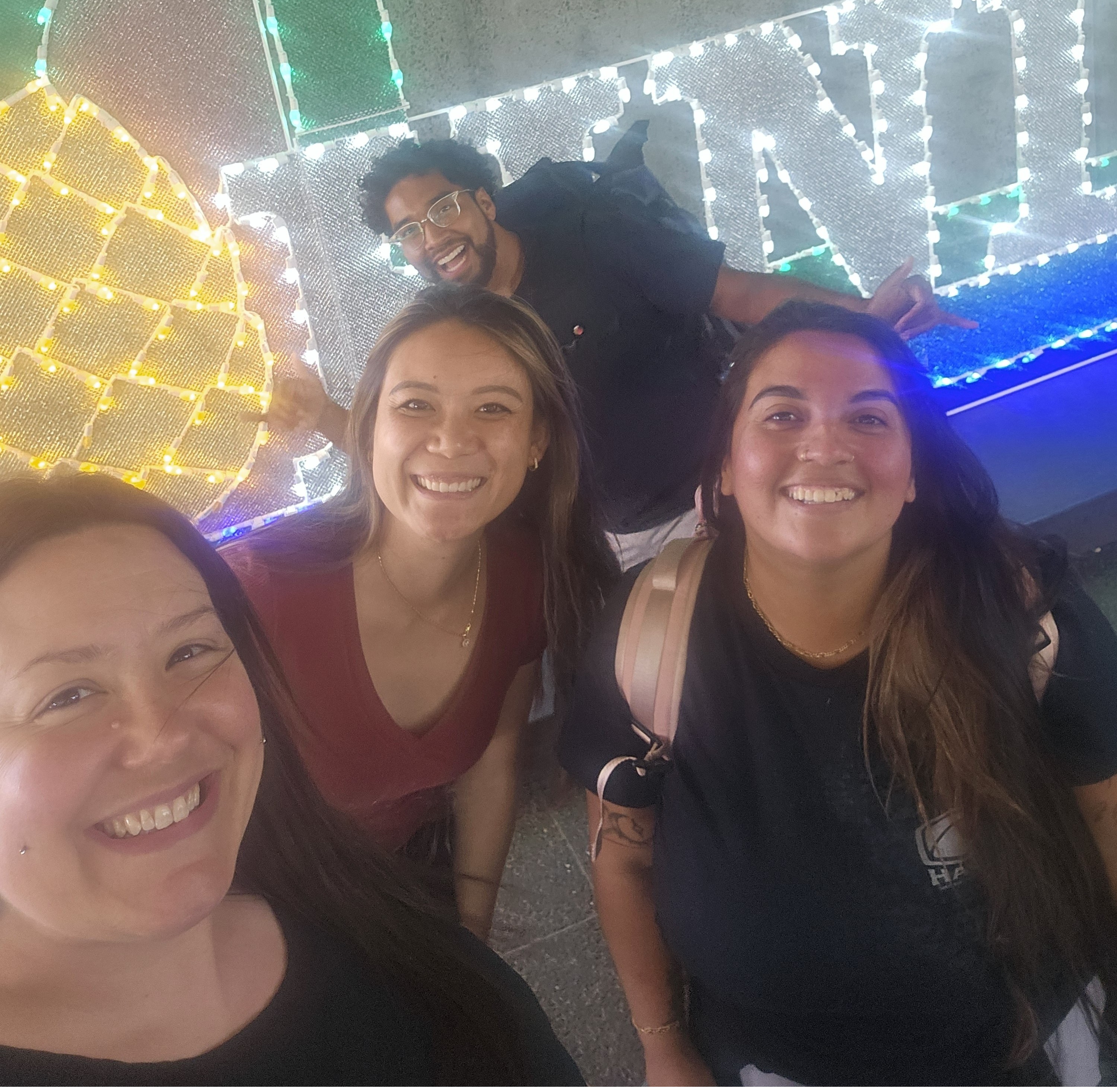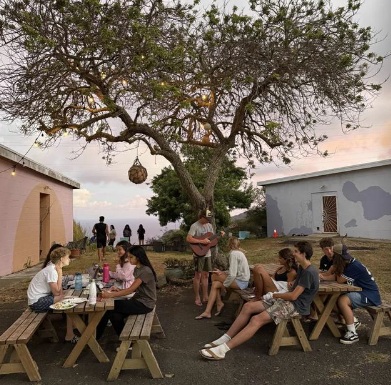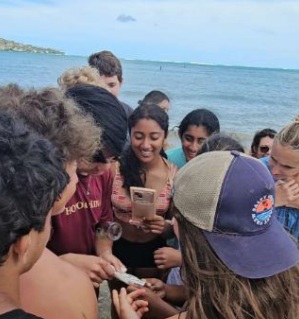Marine Science: Hawai'i
8/3/26 - 8/12/26
Application for Summer 2026 is now open!
Hawai‘i’s rich ecological landscapes and deep cultural heritage are anchored in the foundational value of Mālama ʻĀina—“to care for the land”—a principle that embodies a profound environmental ethic and emphasizes the intrinsic relationship between humans and the natural world. Guided by this philosophy, the Research Scholars Marine Science—Hawai‘i Program offers an immersive 10-day academic experience on the island of O‘ahu, designed for students with a passion for marine science, ecological restoration, and environmental stewardship.
Program Details
Important Dates and Tuition
- Dates: August 3, 2026 to August 12, 2026
- Units: 7.00 Pre-College units, 90000 level
- Open to: 9th-12th grade students. Recent graduates welcome!
- Application: Click here to apply!
- Application Deadline: April 10, 2026
- Payment Deadline: Payment is due within two weeks of acceptance. For students accepted later than May 11th, payment will be due within one week.
- Course Delivery: In Person
- Tuition: $4,900 Please note tuition will include course materials, room and board, all meals, ground transportation, and activities. It does not include airfare.
- Location: O'ahu
- Housing: Winner's Camp
- Instructors: Nicole Yen, Sonya Timko, and Alberto Rivera
Program Description
Students will actively contribute to conservation and research initiatives in various sacred sites in Waimānalo, through invitation by our community partners. These initiatives may comprise 3D mapping, photographic documentation, and transect surveys of reef systems; water quality assessments; instream ecology and fish assessments; and core sampling for fossil and sedimentary analysis. Through the application of ArcGIS, students will additionally analyze the impacts of land-based pollution and climate change on coastal ecosystems using both publicly available datasets and field-collected data, culminating in the creation of a digital story map that documents their findings and supports ongoing restoration efforts.
This program aims to cultivate the next generation of environmental leaders by deepening students’ understanding of ecological interdependence and promoting a sense of responsibility toward local and global marine ecosystems. Participants will be encouraged to translate their learning into action by applying stewardship practices within their own communities.
- Gain a deeper appreciation for and connection to natural resources through hands-on restoration and conservation efforts with local organizations:
- Nation of Hawai’i
- 808 Cleanups
- Learn about Hawaii’s traditional ahupua’a land management and food production systems, such as:
- Oʻi kalo (taro fields)
- Loko iʻa (fishponds)
- Understand the current climate and environmental challenges facing reefs, and how ahupua’a land management, along with a holistic approach from mauka (mountains) to makai (ocean), can:
- Preserve water quality
- Reduce soil erosion
- Prevent nutrient runoff
- Minimize pollutants from reaching the ocean
- Learn restoration and field research techniques with community partners to:
- Learn cultural practices such as Pule/Oli/Mele and pōhaku
- Assess the health of the reef, estuaries, and streams at Waimānalo using transect survey methods, 3D mapping with community partners, and core sampling techniques
- Navigate forest, learn about native plants, and invasive species (coqui frog capture ops)
- Map with ArcGIS at the University of Hawaiʻi at Mānoa
- Be empowered to drive meaningful change in communities by using ahupua’a land management as a model for holistic resource stewardship.
Disclaimer: Students will be dirty and in the water for most days. Students will be accommodated at a camp utilizing a catchment-based water supply. As such, participants should be prepared for basic living conditions and responsible water use. Please be prepared for this!
Schedule
08/03 - Travel Day; Hoʻolauna, Meet and Greet, Course Introduction
08/04 - Introduction to Pāhonu; Pōhaku, Kilo, Snorkel / Research; Evening Leadership Activities and Discussions
08/05 - Short Hike; Waimānalo mauka clearing, lay of land, navigation, biology; Coqui Frog Capture Ops
08/06 - Introduction to Kaloko and Other Inlets; Snorkel / Research; Evening Leadership Activities and Discussions
08/07 - Restoration with Nation of Hawaiʻi; Loʻi kalo, food systems, pōhaku; Intro to Waimānalo wai; Evening Leadership Activities and Discussions
08/08 - Introduction to Pūhā and instream biology and fish; Research; Evening Leadership Activities and Discussions
08/09 - Collective discussion of data/ analyze data in research groups; Evening Leadership Activities and Discussions
08/10 - UH Mānoa, ArcGIS Mapping, Ocean and Earth Sciences and Technology Lab Tour
08/11 - Final Presentations, Waikīkī Night
08/12 - Goodbyes; Travel Day
Disclaimer: Students will be dirty and in the water for most days. Students will be accommodated at a camp utilizing a catchment-based water supply. As such, participants should be prepared for basic living conditions and responsible water use. Please be prepared for this!
Schedule may be subject to change.
Other Program Information
Application
- Application: Click here to apply!
- Application Deadline: April 10, 2026
Acceptance
Students will be notified of their status by early-May.
FAQs
Is financial aid available?
Are applications accepted on a rolling basis?
Where are students staying?
Are flights included in tuition?
Is transportation from the airport included?
Will students have a roommate?
Is the Swim Test required to submit the application?
Are there international student requirements? (Visa information)
What are the application requirements?
What are 90000 level pre-college units?
How do I request a transcript?
Marine Science: Hawai‘i is a self-supported program and does not receive state or federal funding. As such, we are unable to provide financial aid or institutional grants. We encourage students to explore external scholarship opportunities through their school counselors, local organizations, and community resources.
Are applications accepted on a rolling basis?
No. Once the application period closes, a review committee will evaluate all submitted applications. Students will be notified of their admission status by mid-May.
Students will be staying on the island of Oʻahu, Hawaiʻi. Lodging details will be provided upon acceptance into the program.
Are flights included in tuition?
No. Tuition includes course materials, room and board, all meals, ground transportation, and activities. Airfare is not included.
Is transportation from the airport included?
We ask that students book flights to arrive in Oʻahu before 4:00 p.m. Students arriving before 4:00 p.m. will meet staff at baggage claim and be transported to the camp together. Students arriving after 4:00 p.m. are responsible for arranging their own transportation to the camp. Further camp information will be provided upon acceptance into the program.
Will students have a roommate?
Yes. Students will be housed by gender. Roommate assignments are primarily based on the Personal History form, which is available through the application. We encourage students to take their time and answer honestly when completing this form.
Is the Swim Test required to submit the application?
Yes. Students must complete the swim form in order to submit a complete application.
Are there international student requirements? (Visa information)
International students are welcome to apply to the Marine Science: Hawaiʻi program; however, all participants are responsible for their own airfare. The program does not qualify for an F-1 student visa, and most international students enter the U.S. on a tourist visa. There are no English language test requirements.
What are the application requirements?
- Pay the nonrefundable online application fee.
- Complete the online application, including uploading all required documents as directed.
What are 90000 level pre-college units?
Courses numbered 90000-99999 are non-credit-bearing, pre-college-level courses designed to provide an opportunity for students to explore academic interests or prepare for college admission. Research Scholars pre-college units may be transferable for secondary school credit at the discretion of the receiving institution. Students should discuss the transferability of individual courses with the registrar of their secondary school prior to enrolling.
How do I request a transcript?
For instructions on how to order a transcript, please click here. If you’ve never ordered transcripts through Parchment before, you will need to register for a Parchment account. Details can be found from the link above. All transcripts will be printed and delivered by one of the methods listed here. Transcript requests are processed by Student Services. Should you have any questions, please contact them at unex-reg@ucsd.edu.
You can also view/download your grade report by logging in your MyExtension here.
Cancellation/Refund Policies
CANCELLATION/REFUND POLICY
Cancellation or withdrawal for any reason prior to the last Monday in June will receive a tuition refund. The application fee is non-refundable.
Tuition is not refunded for students who are dismissed from the program.
You may file a petition for an exception to the refund policy if you are unable to continue enrollment for one of the following reasons:
- Sudden serious personal illness, injury or hospitalization
- The sudden serious illness, injury, hospitalization or death of a close member of your family
- Compulsory military service
- A documented administrative error that affected your enrollment
- Extreme and unusual circumstances which were beyond your control
Refunds will take approximately 4-6 weeks to process. Refunds are issued in the same method of payment (check or charge) of payment to UC San Diego Research Scholars. Service fees are non-refundable.
To request a refund, contact Diana Hernandez at dih001@ucsd.edu.





